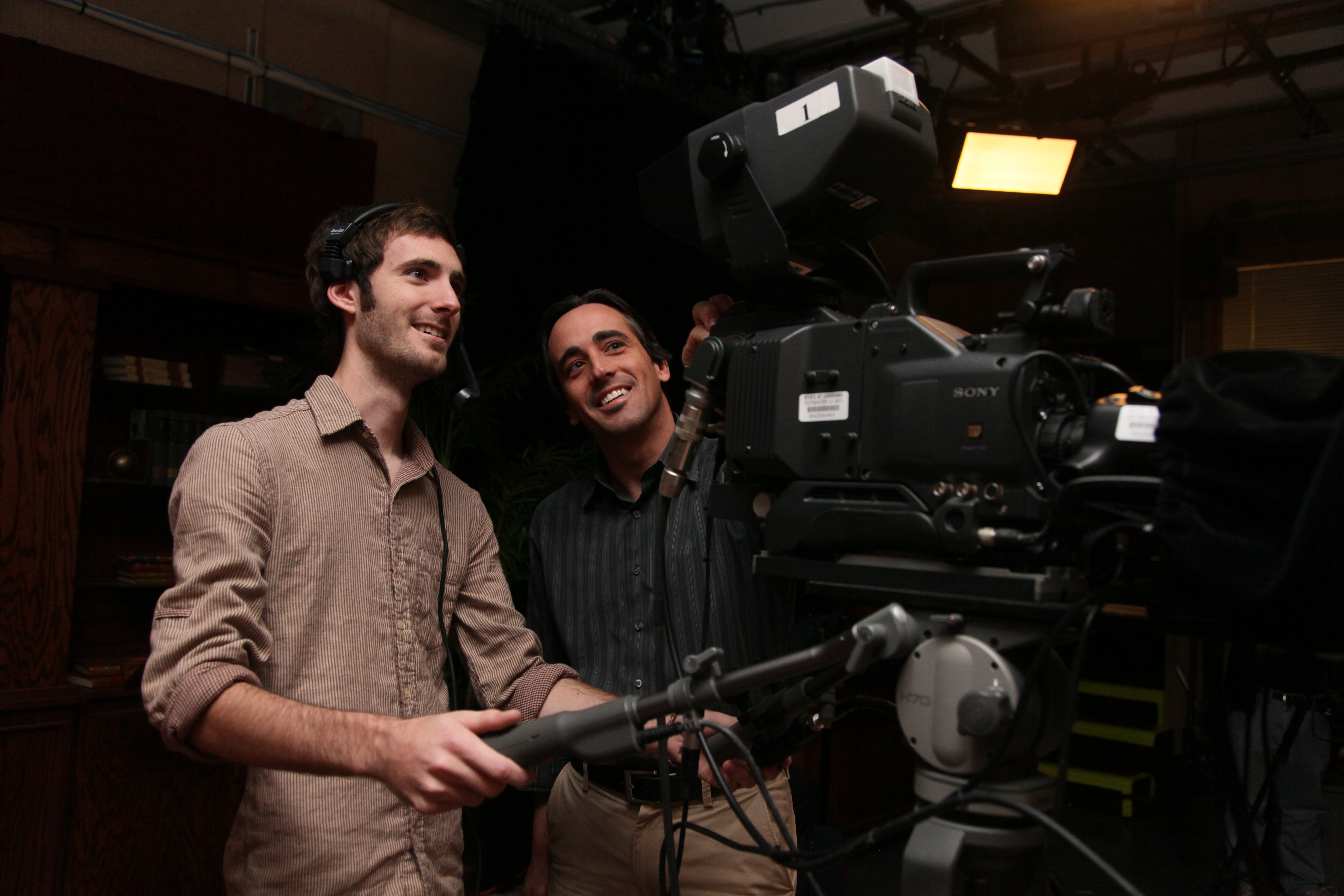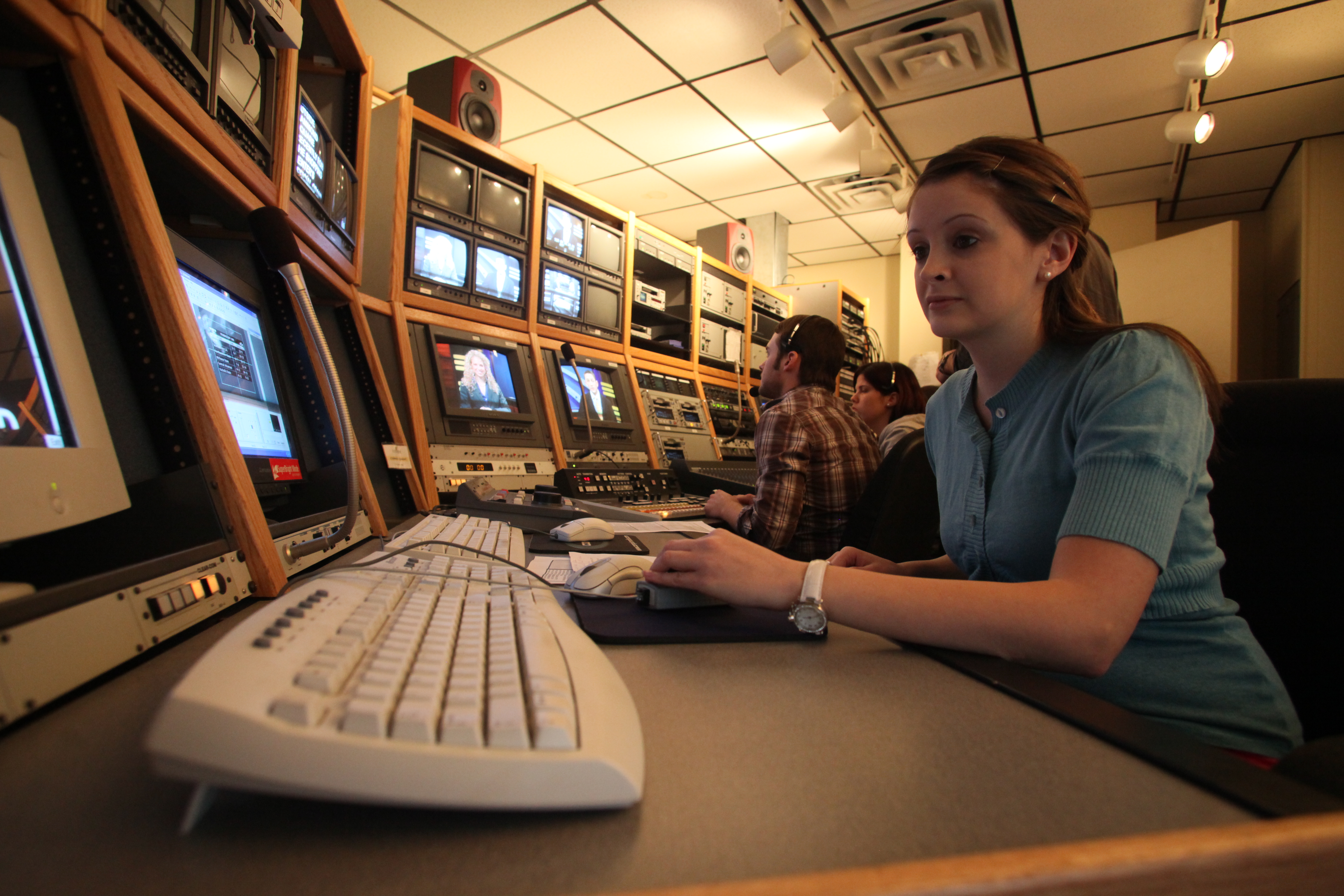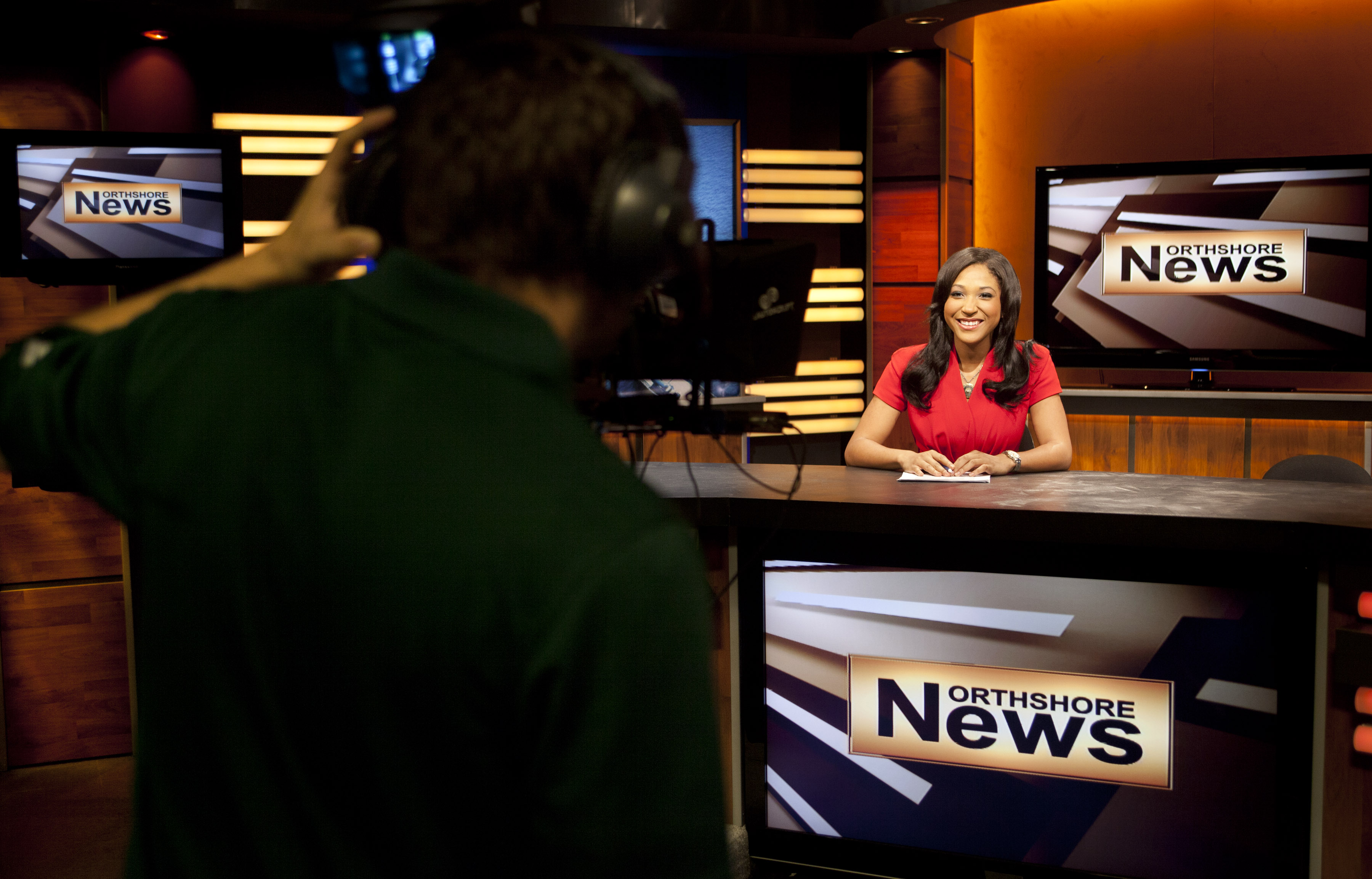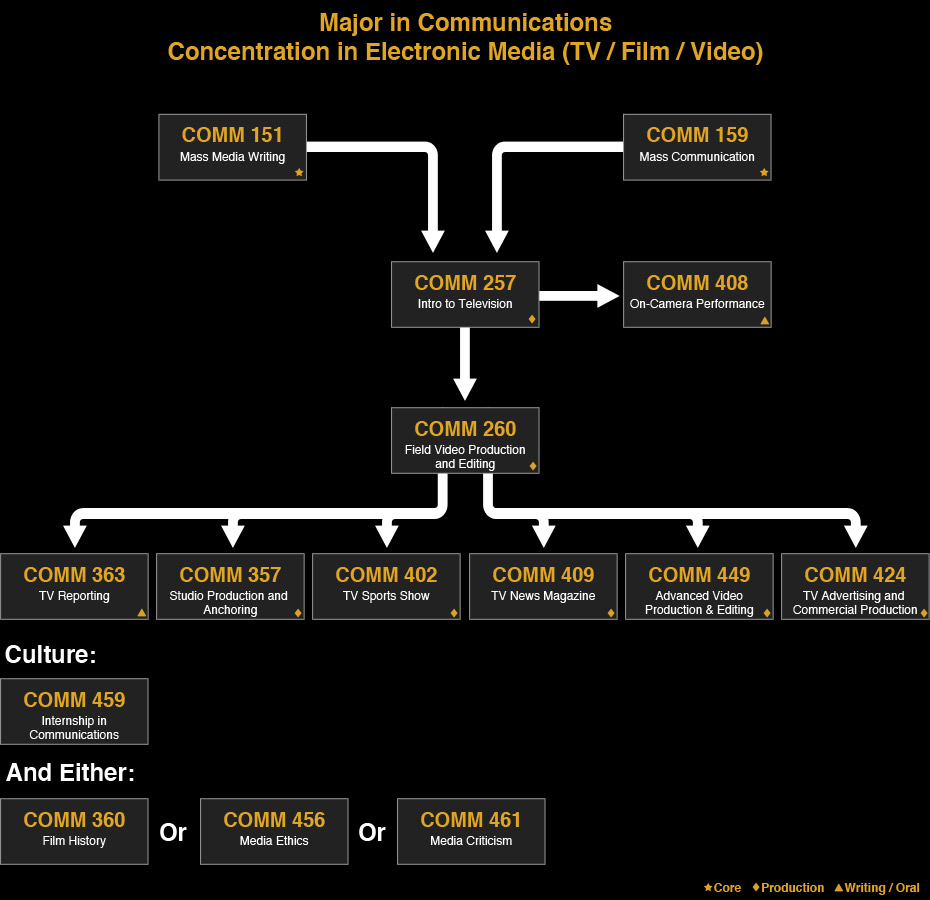Southeastern Louisiana University students can study television and video production in Department of Communication classes and gain invaluable, hands-on experience by training at the Southeastern Channel, one of the elite college television programs in the country. At the Southeastern Channel students can work on national award-winning, student-produced television programs which cover news, news magazine, sports, entertainment and music video genres. They also produce live education, community, sports and entertainment events along with commercials. These programs are produced both in the studio and on location and provide thorough training both in front of-and-behind the camera.
As they work on these excellent shows, students can focus on their positions of choice- whether anchoring, on-camera reporting, writing, talk show hosting, producing, directing, technical directing, floor managing, camera operating, lighting, sound recording and mixing, post-production editing, or creating computer graphics and animations. In addition to taking classes, students can train at the Southeastern Channel by working on a variety of professional, student and student-staff programs as a paid student worker. These students work up to 25 hours a week in a variety of television production positions.
Although the Southeastern Channel has only been in existence for five years, it already has a glowing track record for placing television graduates in high profile jobs. Recent graduates Krystal Bouthe (WWL-TV, New Orleans Ch. 4) and Randi Rousseau (WDSU-TV, New Orleans Ch. 6) landed on-air reporter positions directly after graduating from Southeastern. Of course, Southeastern’s highest profile graduate is Robin Roberts, the Emmy Award-winning host of Good Morning America and former ESPN Sportscenter anchor.
Students who study television and video production at Southeastern can obtain a Bachelor’s Degree in Communication with a concentration in Electronic Media.
B.A. Degree in Communication
Electronic Media Concentration
Students should enroll in Electronic Media courses as soon as possible their freshman or sophomore years. This will enable television and video students to learn the basic techniques early on so that they can practically apply them by working in various positions on various television programs at the Southeastern Channel over the course of their Southeastern career. According to the Electronic Media concentration guide, students can work on news (Northshore News, Southeastern Times), sports (The Big Game), and entertainment (College Night, Cinematheque, INDI-visual) shows- or on commercials and film and documentary shorts- simply by following the course curriculum. Students who have completed Comm 257 as a dual enrollment course in high school must take 151 and 159 before taking Comm 260. Because of their need for training and demo reel preparation, most students in Electronic Media choose to enroll in more production courses than the basic three required for the Communication degree. In this case students save their free electives and save them for these additional production courses- or choose to enroll in the additional Electronic Media courses above and beyond basic degree requirements. Comm 257 and 260 are required as prerequisites for all subsequent Electronic Media courses, though in special cases some courses may be taken concurrently or waivers of prerequisites are granted. In such cases, contact Rick Settoon ([email protected] or 985-549- 2418) for approval.







